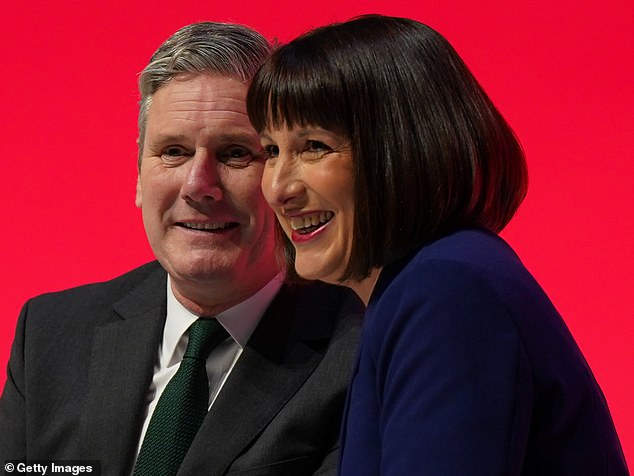There are $300billion of Russian assets in the UK and the EU but the issue of whether we should seize rather than just freeze them, remains up for debate.
Members of cross-party groups over the weekend called for the immediate confiscation of these assets to pay for the defence and ultimate rebuilding of Ukraine following the extraordinary scenes at the White House on Friday.
There has, however, been a hesitancy on this point. As a consequence, although the interest on the assets – about a tenth of which are in the UK, the bulk in Europe – is being used to help the Ukraine war effort, the principal has been left untouched.
Chancellor Rachel Reeves said over the weekend that the £2billion loan the UK is extending to Ukraine will be repaid from the ‘profits’ on frozen Russian assets, which is in line with that approach.
The qualms about seizure are based on whether such a move would be legal – as if that kind of thing bothers Putin – and on fears it could deter other foreign governments from depositing their assets here.
That in turn could undermine the status of sterling and the euro as reserve currencies. Whether we should be so concerned about being given a cold shoulder by rogue states is a different debate.

Double act: Defence is a major source of high value, skilled jobs in the regions – Labour recognises this
While we ponder such niceties, the Russians seem to be moving ahead. A draft bill with a procedure for the Kremlin to take foreign property was approved last month by the government’s legislative activity committee, according to Reuters. As well as the latest loan to Ukraine, Reeves is also changing the rules on the £27.8billion National Wealth Fund so it can be spent on defence as well as on infrastructure and green energy.
Increasing defence spending to the levels needed will be an extraordinary challenge for the Chancellor when the public finances are already so constrained, but it will have to be done.
There are other moves the Government can make. Any further attempt by US private equity group Bain Capital for UK defence company Chemring must be stopped in its tracks. Flogging off a company such as this to a US owner at this time would be absurd.
Selling our best defence companies to the Americans, regardless of their reliability or otherwise as an ally, risks harming the economy. Defence is a major source of high value, skilled jobs in the regions: it accounts for 164,000 employees and 8,000 apprentices, most of them outside London and the South East. Labour recognises this. A defence industrial strategy was in its manifesto and was followed by a statement of intent. This needs to be backed by action.
Those investors shunning defence on ESG – Environmental, Social and Governance – grounds need to give their heads a wobble.
As General Sir Roly Walker, the head of the Army, observed recently, ESG rules lump defence investment in the same category as tobacco, gambling and pornography.
That is an insult to the men and women in our Armed Forces, who need a strong defence industry behind them.
Chancellor Reeves also needs to move faster to try to address the issues such as stamp duty on share trades that are depressing the valuations of UK-listed companies.
Failing to do so is tantamount to putting a For Sale sign on large tracts of UK Plc, including defence.
Finance can be a powerful weapon in a world that becomes more dangerous by the day.
DIY INVESTING PLATFORMS

AJ Bell

AJ Bell
Easy investing and ready-made portfolios

Hargreaves Lansdown

Hargreaves Lansdown
Free fund dealing and investment ideas

interactive investor

interactive investor
Flat-fee investing from £4.99 per month

Saxo

Saxo
Get £200 back in trading fees
Trading 212
Trading 212
Free dealing and no account fee
Affiliate links: If you take out a product This is Money may earn a commission. These deals are chosen by our editorial team, as we think they are worth highlighting. This does not affect our editorial independence.
This article was originally published by a www.dailymail.co.uk . Read the Original article here. .

